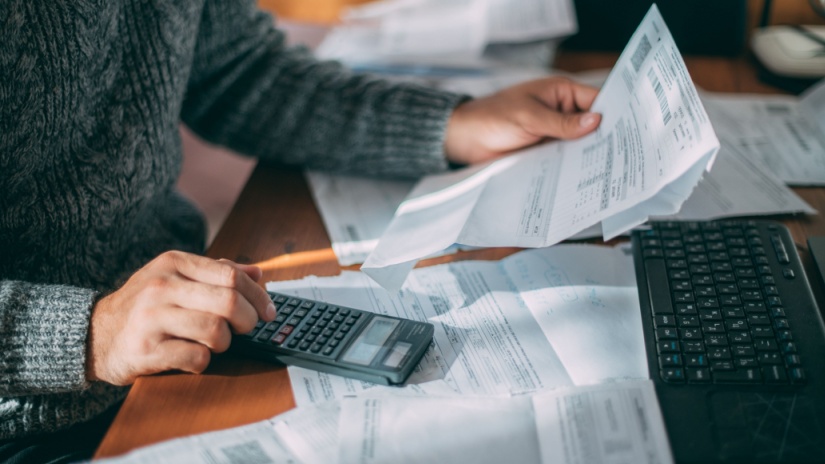Average electricity bill for a 2-person household: What to expect in 2025

In 2025, the average electricity bill for a two-person household in Australia is expected to vary depending on a variety of factors, including the region, energy consumption habits, and the type of electricity plan chosen.
On average, Australian households spend around $1,500 to $2,500 per year on electricity, or approximately $125 to $210 per month. However, this figure can be significantly higher or lower based on your energy use, the size and efficiency of your home, and local electricity prices.
With rising electricity costs, many Australians are looking for ways to better understand and manage their energy usage. By reviewing what affects the average bill and making simple changes to consumption habits, you can reduce your electricity bill and avoid unnecessary costs.
This article will explain the factors that influence electricity bills for a small household, provide a breakdown of average electricity costs across Australia’s regions, and share tips for reducing your power consumption.
Factors that influence electricity bills in a small household
Several factors can influence the cost of electricity for a two-person household. While the base energy price is a significant part of the bill, the amount of energy used also plays a large role. Here are some key factors to consider:
Energy consumption
The most important factor in determining your electricity bill is how much energy you use. Households with higher energy consumption, such as those with many electrical devices, air conditioning, or electric heating, will naturally have higher bills. The average Australian two-person household uses between 5,000 to 7,500 kWh (kilowatt-hours) of electricity per year, but this can vary.
Appliance efficiency
The energy efficiency of your appliances can also make a significant difference in your bill. Older, less efficient appliances consume more power, while newer models tend to be more energy efficient. Switching to energy-efficient appliances, such as LED light bulbs, smart thermostats, and energy-saving refrigerators, can help lower energy use.
Type of electricity plan
Electricity providers offer different plans, such as standard rate, time-of-use, or off-peak tariffs. Your electricity plan can affect your bill depending on when and how you use power. For example, if you have a time-of-use plan, you may be able to save money by using high-energy appliances during off-peak hours.
Household habits
How you use energy in your home matters. If you regularly leave lights on, have inefficient heating and cooling systems, or overuse appliances, your bills will likely be higher. Reducing energy consumption in daily activities can lead to noticeable savings.
Seasonal changes
Electricity usage tends to increase during the warmer and colder months, especially if you use air conditioning or electric heating. In summer, cooling appliances such as fans, air conditioners, and fridges run more frequently, while in winter, electric heating can spike your consumption. Keep this in mind when budgeting for seasonal variations in your bill.
Location and electricity tariffs
Electricity prices can vary from state to state and even between regions within states. Each area has different market dynamics, which can impact how much you pay for electricity.
How to lower your electricity bill with simple changes
There are several practical and cost-effective ways to lower your electricity bill without sacrificing comfort. Here are a few simple changes that can help:
Switch to energy-efficient appliances
Investing in energy-efficient appliances, such as LED lighting, high-efficiency washing machines, and energy-efficient fridges, can significantly lower your electricity consumption. Look for the ENERGY STAR label to ensure that the appliances you purchase meet high efficiency standards.
Use appliances wisely
- Run dishwashers and washing machines only with full loads.
- Avoid using high-power appliances (like dryers or irons) during peak hours.
- Opt for cold water washing whenever possible.
Install a smart thermostat
A smart thermostat can help you better control your heating and cooling systems, ensuring that your home stays at a comfortable temperature without wasting energy. Set the temperature a few degrees higher in summer or lower in winter to reduce heating and cooling costs.
Seal windows and doors
Proper insulation is key to reducing heating and cooling costs. Seal any gaps around windows and doors to prevent warm or cool air from escaping. Adding curtains or blinds to your windows can also help to keep your home at a stable temperature.
Use off-peak electricity
If your provider offers time-of-use tariffs, consider shifting energy-intensive activities to off-peak hours, such as running your washing machine at night. By doing so, you can benefit from lower electricity rates during off-peak times.
Turn off standby power
Many household appliances, such as TVs, computers, and kitchen appliances, use power even when not in use. Unplugging devices or using a power board to turn off multiple devices at once can help you save energy.
Average power bills in different regions of Australia
Electricity prices can vary significantly across different regions of Australia. Below is an overview of the typical electricity costs for a two-person household in 2025 across various regions, based on the latest available data.
New South Wales
The average annual electricity bill for a two-person household in New South Wales is expected to be between $1,600 and $2,100. This varies depending on the city or region and the type of plan selected. Sydney, for example, generally has lower electricity prices than rural areas.
Victoria
In Victoria, the average electricity bill for a two-person household is between $1,500 and $2,000 annually. Melbourne has relatively competitive electricity rates, but seasonal changes in energy consumption (especially heating in winter) can affect your bill.
Queensland
Electricity prices in Queensland are generally higher, with two-person households typically paying $1,700 to $2,300 per year. The cost is impacted by the high use of air conditioning during the hot summer months.
South Australia
South Australia has some of the highest electricity prices in Australia, with two-person households paying $1,800 to $2,400 annually. However, South Australia is a leader in renewable energy, and many providers offer options to access green energy plans.
Western Australia
Western Australia’s electricity prices are often lower, with average annual bills ranging from $1,400 to $1,800. This is mainly due to the state's more stable energy supply and reliance on local sources.
Tasmania
Tasmania, with its abundant hydropower, offers some of the lowest electricity prices in the country, with average bills for a two-person household ranging between $1,300 and $1,700 per year.
Sources:
Tips for budgeting and reducing energy consumption for small households
Track your energy usage
Use your electricity provider’s app or online portal to monitor your usage. This will help you understand when and where you are consuming the most energy, enabling you to make adjustments.
Set a budget
Based on your average monthly consumption, set a realistic energy budget. This will help you stay on track and prevent any unexpected spikes in your bill.
Take advantage of rebates and assistance
Check if you are eligible for any government rebates or assistance programs. Many states offer energy rebates, which can help reduce the overall cost of your electricity.
Conduct an energy audit
Consider getting a professional energy audit to identify areas where you can improve efficiency. Some energy providers offer free or discounted audits.
Get connected with Compare Energy
In 2025, the average electricity bill for a two-person household in Australia will depend on a variety of factors, including where you live, your energy usage habits, and the type of plan you are on. By understanding these factors and implementing simple changes, you can take control of your electricity costs and reduce your monthly bill.
If you're looking to compare electricity plans, find the best rates, or need help managing your energy consumption, speak to the team at Compare Energy on 1300 790 106. Our experts can assist you in finding the best plan to save on your electricity bills today!

